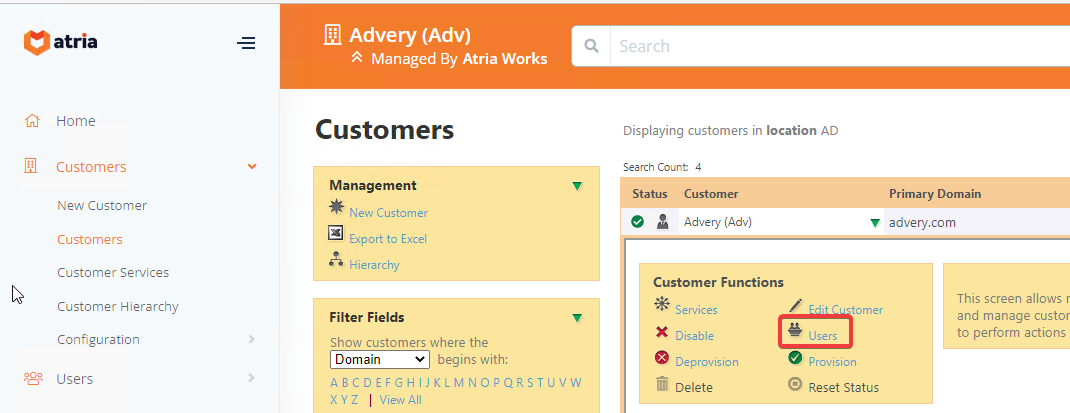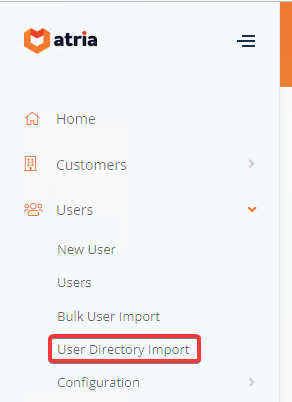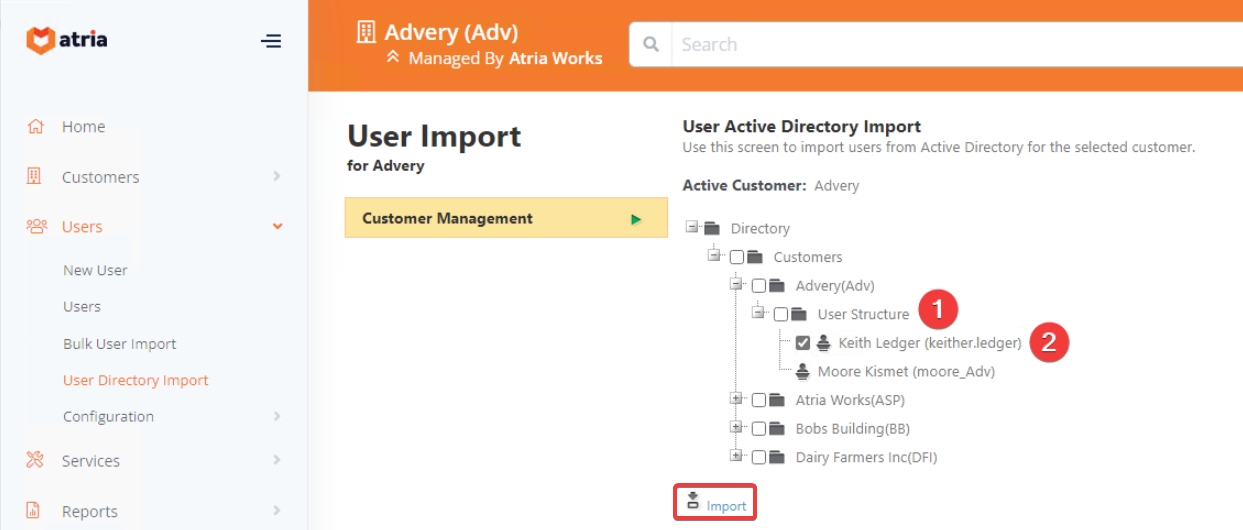Active Directory User Import
Overview
The Active Directory User Import tool allows you to import users created in Active Directory but not yet present in Atria. Whether these users were added through a script or directly in Active Directory, this tool enables seamless integration into Atria.
It imports all relevant user properties from Active Directory and provisions the users within Atria. This allows your team to maintain existing user creation processes while ensuring smooth service management in Atria.
Importing users from Active Directory is one of several methods available for migrating users when setting up Atria.
How to Import Users using Directory User Import
First, select your Customer and navigate to the Users page:

Next, on the Left hand menu select Users then User Directory Import:

You'll then be redirected to the User Active Directory Import screen.
This provides an overview of the OU structure of Active Directory. Simply navigate to the OU where the user exists that you'd like to import.
Here there are two options on importing new users:
- Whole OU import - This will import the whole "User Structure" OU into Atria
- Per User import - This will import individual users and not the whole OU.
Once you've selected the OUs/Users, simply select "Import":

Now your user/ users are available for provisioning and management within Atria.

Sync Users from Entra ID (Azure AD)
Atria also allows seamless synchronization of user accounts from Microsoft Entra (Azure AD) in Atria/Active Directory. This process synchronizes user details and licenses, keeping your cloud and on-premises environments aligned.
To enable this feature, you will need to setup and deploy the Microsoft Online. For more details on the sync feature, refer to Synchronizing user accounts between Azure AD and Atria.
AD Sync Users (Legacy)
Atria allows you to synchronize users from your on-premises Active Directory into Atria. This ensures that user accounts, along with key details like group memberships, are consistent across both environments. For detailed steps on how to configure AD Sync, refer to the AD Sync Service Overview.